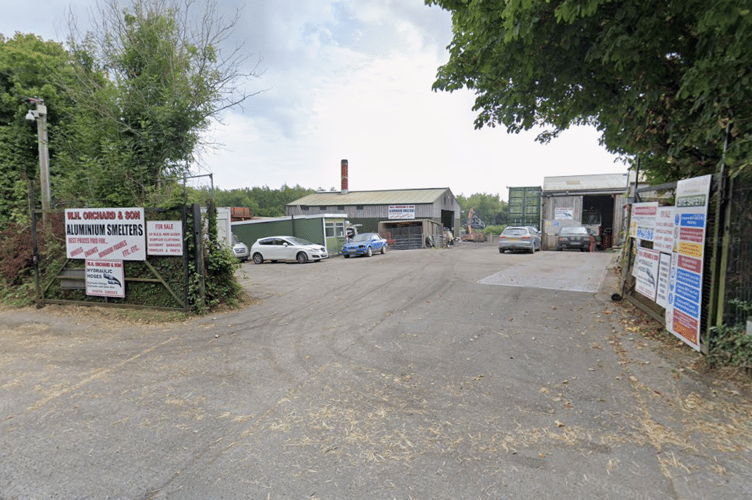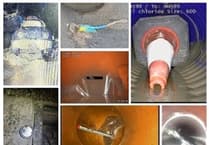A CORNISH scrapyard owner has been handed a suspended prison sentence and ordered to repay more than £200,000 after running an illegal aluminium-smelting operation for several years and falsifying environmental records.
Under the Proceeds of Crime Act, Orchard was ordered to repay £1,271,034, of which £201,743 must be paid within three months, by February 13, 2026, or he faces 18 months in prison. The Environment Agency confirmed it could pursue the remaining sum if Orchard acquires additional funds in the future.
The court heard that Burnt House Garage is a permitted end-of-life vehicle processing facility with an aluminium smelting operation. The Orchard family has operated the site for many years, but Graham Orchard has been the primary operator since 2013, and the environmental permit was formally transferred to him in 2017.
The permit allows the garage to process up to 5,000 tonnes of waste vehicles and metals annually and to separate aluminium from mixed vehicle scrap by differential melting. Aluminium melts at a lower temperature than other vehicle metals, allowing it to be recovered and sold as ingots.
The permit also sets strict conditions to protect human health and the environment. Engines must be fully depolluted, the furnace must be fuelled only with low-sulphur diesel (less than 0.1 per cent), and annual emissions must be submitted to the Environment Agency. Crucially, the use of waste engine, gearbox, or hydraulic oils as fuel is prohibited due to dangerously high sulphur content.
For years, Orchard submitted emissions reports that appeared to show the smelter was operating within legal limits. However, investigators discovered that the commissioning test for the furnace had originally failed. Orchard submitted a doctored version of the report, removing recommendations to improve the furnace and altering the results tables so failed readings were recorded as passes. Subsequent reports were also falsified, creating the appearance of ongoing compliance.
The director of the testing company later confirmed in a witness statement that he only visited the site once and had expected follow-up tests, which Orchard never arranged.
Further inspections revealed no hazardous waste liquids were consigned from the garage between 2017 and 2021, despite the site processing thousands of vehicles. When asked, Orchard provided a false consignment note in 2022. Investigators estimated that Burnt House Garage should have produced approximately 14,100 tonnes of waste engine oil and 1,250 tonnes of brake fluid over five years.
An Environment Agency spokesperson said: “Orchard deliberately falsified reports in order to mislead us into believing the smelter was being properly managed and was operating properly. Sadly, that certainly was not the case.
“I hope this prosecution sends out a clear message that we are cracking down on offenders who deliberately flout the regulations and undermine legitimate waste operators.”




.jpeg?width=209&height=140&crop=209:145,smart&quality=75)
Comments
This article has no comments yet. Be the first to leave a comment.